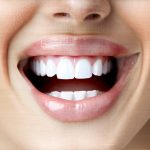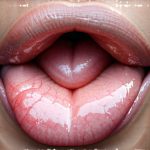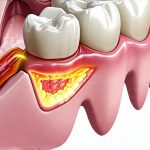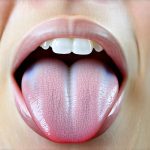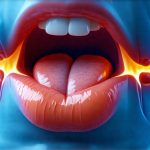Gastroesophageal reflux disease (GERD) is a surprisingly common condition affecting millions worldwide, often manifesting as heartburn or acid indigestion. However, its impact extends far beyond digestive discomfort, quietly influencing aspects of daily life many people don’t associate with it—particularly oral health and morning breath. While seemingly disparate, the connection between GERD and what happens in your mouth is significant, stemming from the acidic environment reflux creates and the subsequent changes within the oral cavity. Understanding this relationship isn’t just about eliminating unpleasant morning breath; it’s about protecting your teeth and gums from long-term damage and recognizing a potential indicator of underlying health concerns.
The cyclical nature of GERD—acid rising into the esophagus, sometimes reaching the mouth—creates a unique challenge for dental health. This acid exposure isn’t merely irritating; it actively erodes tooth enamel, alters the oral microbiome (the community of bacteria in your mouth), and can contribute to various dental issues. Morning breath is frequently one of the first noticeable signs, but it’s often just the tip of the iceberg when it comes to the subtle yet substantial effects GERD has on our mouths. It’s crucial to remember that managing GERD isn’t solely a digestive issue; it requires a holistic approach that considers its impact on overall health, including oral wellbeing. Understanding how stress affects liver function can also contribute to better management of underlying factors.
The Link Between GERD and Morning Breath
Morning breath, often scientifically known as halitosis, is incredibly common – most people experience some degree of it upon waking. It’s typically caused by a decrease in saliva production during sleep, allowing bacteria to flourish and produce volatile sulfur compounds (VSCs) which are responsible for the unpleasant odor. However, when GERD is present, morning breath can be significantly worse and often carries a distinctly sour or acidic smell. This isn’t just typical bacterial buildup; it’s a direct consequence of stomach acid reaching the mouth throughout the night. – The acidity disrupts the natural balance of oral flora – It encourages certain bacteria to thrive that produce more VSCs – And, most importantly, it erodes tooth enamel, making teeth more susceptible to damage and contributing to a persistent unpleasant odor. If you experience frequent heartburn, consider exploring how GERD affects your throat.
The process is often insidious. As stomach acid repeatedly backs up into the esophagus and sometimes even reaches the mouth during sleep (when individuals are lying down), it creates a highly acidic environment that favors certain types of bacteria known for producing particularly pungent compounds. These aren’t the same bacteria responsible for typical morning breath, leading to an odor that is markedly different – often described as sour, bitter, or resembling vinegar. This acid exposure also damages tooth enamel, creating microscopic irregularities where bacteria can cling and proliferate, further exacerbating the problem. It’s a vicious cycle: GERD causes acid reflux, acid erodes teeth and changes oral flora, altered flora produces more odor-causing compounds, and damaged enamel provides more surfaces for bacterial adhesion.
Addressing morning breath related to GERD isn’t as simple as brushing your teeth more frequently (although that is still important!). It requires addressing the underlying cause – the reflux itself. While good oral hygiene can help mitigate some of the effects, it won’t eliminate the source of the acidic environment. Lifestyle changes, medication prescribed by a physician, and dietary adjustments are all vital components in managing GERD and subsequently reducing the severity of morning breath. A focus on gut health simple practices can also aid overall digestive wellness.
How Acid Reflux Damages Tooth Enamel
Tooth enamel is the hardest substance in the human body, acting as a protective barrier against acids, sugars, and temperature extremes. However, even this resilient armor has its limits. Frequent exposure to stomach acid, as occurs with GERD, gradually weakens and erodes enamel over time. This process, known as acid erosion, isn’t immediately visible but accumulates slowly, leading to significant damage if left unchecked. – Initial stages may present as increased tooth sensitivity to hot or cold temperatures – As erosion progresses, teeth can become more brittle and prone to cavities – And eventually, the structural integrity of the tooth is compromised, potentially requiring restorative treatment like fillings or crowns.
The danger lies in its subtlety. Unlike decay caused by sugar, acid erosion often doesn’t present with obvious symptoms until significant damage has already occurred. Because enamel loss is gradual, many people don’t realize their teeth are being eroded until they experience sensitivity or notice visible changes. The acidic environment created by GERD also alters the pH balance in the mouth, making it more favorable for demineralization – the process where minerals are leached from tooth enamel. This further weakens the protective barrier and accelerates erosion. It’s important to note that frequent snacking on acidic foods or drinks can compound this issue, exacerbating enamel loss when combined with GERD-related acid reflux.
Protecting your enamel involves a multi-pronged approach: managing GERD symptoms, practicing good oral hygiene, limiting acidic food and drink consumption, and potentially using fluoride treatments to strengthen remaining enamel. Your dentist can assess the extent of any existing erosion and recommend appropriate preventative measures or restorative treatments. Regular dental checkups are essential for early detection and intervention. Understanding how gut infections impact digestive processes is also beneficial.
The Impact on Gum Health
While much attention is given to tooth enamel erosion, GERD also significantly impacts gum health. The same acidic environment that damages teeth irritates gum tissue, potentially leading to gingivitis (inflammation of the gums) and even more severe periodontal disease over time. Acid reflux can disrupt the natural microbial balance within the mouth, creating an environment where harmful bacteria thrive and contribute to gum inflammation. – Chronic inflammation weakens the tissues supporting your teeth – Leading to bleeding gums, receding gum lines, and eventually tooth loss.
The link between GERD and gum health isn’t always straightforward. Some studies suggest a bidirectional relationship – meaning that GERD can worsen gum disease, and conversely, periodontal disease may exacerbate GERD symptoms. This is because inflammation in the mouth can trigger systemic inflammatory responses throughout the body, potentially impacting esophageal function and increasing the likelihood of acid reflux. It’s also worth noting that some medications used to treat GERD can have side effects that contribute to dry mouth (xerostomia), further compromising gum health by reducing saliva’s protective properties. You might find it helpful to learn how smoking affects GI health.
Maintaining good oral hygiene is paramount in mitigating these risks. This includes regular brushing, flossing, and professional dental cleanings. Additionally, individuals with GERD should be particularly vigilant about addressing any signs of gum inflammation promptly and discussing potential medication side effects with their physician. A proactive approach to both GERD management and oral care is essential for preserving long-term gum health.
Dietary Changes & Oral Care Strategies
Dietary adjustments play a crucial role in managing GERD symptoms, and subsequently minimizing the impact on oral health. Avoiding trigger foods that exacerbate reflux—such as caffeine, alcohol, chocolate, spicy foods, and fatty meals—can significantly reduce the frequency and severity of acid backup. – Eating smaller, more frequent meals rather than large ones can also help – And avoiding eating close to bedtime allows the stomach to empty before lying down. Hydration is important too – water helps neutralize acidity and washes away food particles. Considering balanced meals for liver health can further support overall wellbeing.
In terms of oral care, several strategies can help protect teeth from acid erosion and maintain gum health. – Using a fluoride toothpaste strengthens enamel and makes it more resistant to acid attacks – A soft-bristled toothbrush minimizes abrasion during brushing – And rinsing with a fluoride mouthwash after meals helps neutralize acids and remineralize enamel. It’s also advisable to avoid aggressive brushing, which can further erode weakened enamel. Some dentists recommend using specialized toothpastes designed for sensitive teeth or those prone to acid erosion.
Finally, regular dental checkups are non-negotiable. Your dentist can monitor the condition of your enamel and gums, identify any signs of damage early on, and provide personalized recommendations for preventative care. Open communication with both your physician and your dentist is essential for developing a comprehensive plan that addresses GERD symptoms while safeguarding your oral health. Managing GERD isn’t just about alleviating discomfort; it’s about preserving the long-term vitality of your smile.



